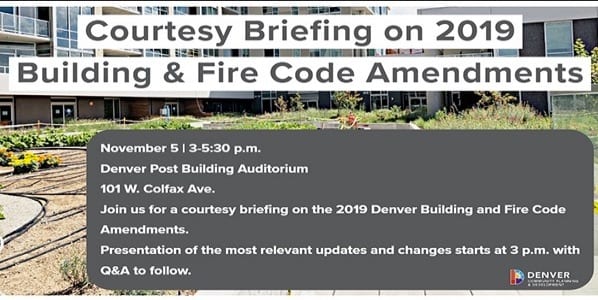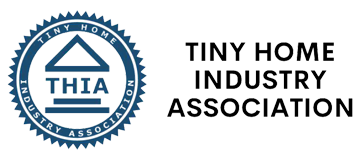Appendix Q In Progress: Denver, Colorado
Written By Janet Thome
Denver, Colorado is in in their building code cycle change to include the 2018 IRC and Appendix Q Tiny Houses has been included in Denver’s proposed code changes and is in progress. There will be a public forum on Nov. 5th, 2019 from 3 to 5:30 pm that will be a courtesy briefing on all the code changes, including Appendix Q. There will be a window of time that will be announced after the meeting.

Support Information From Denver
Supporting Information:For dwellings that are 400 square feet or less in floor area,excluding lofts, Appendix Q provides relaxed provisions as compared to those in the body of the code. These provisions primarily address reduced ceiling heights for loft areas and specific stair and ladder detail requirements that allow for more compact designs where accessing lofts
.Purpose: This allows alternatives to low cost housing.
Reason: Low cost housing is a city-wide initiative
Reasons: Denver has a housing shortage. The real estate market is inflated, thus reducing housing options
Substantiation: Without the amendment, homes under 400 square feet are almost impossible to permit using the IRC
Impact: Proposal with reduce the cost of alternative low cost housing
The City and County of Denver is adopting an updated Building and Fire Code, which will include the 2018 editions of the following international codes:
- International Building Code
- International Existing Building Code
- International Residential Code
- International Energy Conservation Code
- International Mechanical Code
- International Plumbing Code
- International Fuel Gas Code
- International Fire Code
- International Green Construction Code (brand new to Denver – will be voluntary)
City And County Of Denver
International Green Construction Code: Voluntary Option
Denver has included the Green Construction Code that is brand new and will be used voluntarily. The 2018 International Green Construction Code (IgCC) provides the design and construction industry with the single, most effective way to deliver sustainable, resilient, high-performance buildings. The ‘IgCC-powered-by-189.1’ joint initiative frames the essential sustainable construction building blocks on which future resilient initiatives can develop and expand.
By collaborating on developing the 2018 IgCC, the strategic developing organizations supporting it envision a new era of building design and construction that includes environmental health and safety as code minimums. The goal of the 2018 IgCC will provide fundamental criteria for energy efficiency, resource conservation, water safety, land use, site development, indoor environmental quality and building performance that can be adopted broadly.
International Green Construction Code ICC
Tiny-home villages could be allowed across much of Denver
She is proposing that the city change its rules to allow tiny-home villages on far more properties. The change could make it much easier and simpler to build the low-cost housing communities in Denver
Under Kniech’s proposal, which was written with city staff, villages would be officially allowed in industrial, mixed-use and commercial zones. Opening up industrial sites could give organizers new access to warehouse sites on the edge of residential neighborhoods.
Villages also would be allowed on church sites, community centers and other institutional sites in residential neighborhoods, but not directly on single-family properties. Villages in residential areas would be limited to 30 homes, depending on space. All units would have to be at least 70 square feet.
Denver City Council to invest $500,000 in ‘granny flats’ program
The Denver City Council agreed Monday to invest $500,000 in an ongoing pilot program that provides forgivable loans to West Denver homeowners to help fund accessory dwelling units, or ADUs, popularly known as “granny flats.”
Those ADUs — small homes adjacent to a homeowner’s primary single family home, on the same lot or parcel — can supplement a homeowner’s income as a rental property, the city argues.
